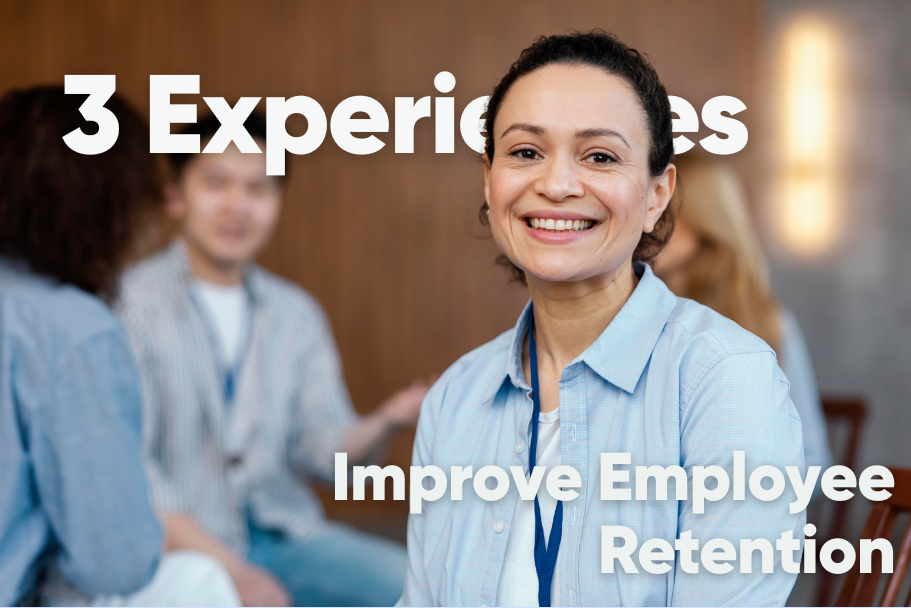“If you don't like taking a risk, you are taking a risk. You're taking the risk of stagnation, or the risk that your company or team will seize to be relevant over time … We need to continue to help people shift their mindsets from, 'I got this' to, 'I wonder what would happen if …'“
Amy Edmondson, Novartis professor of leadership and management at Harvard Business School, and renowned for her research on psychological safety, joins the Better podcast to talk about her new book, “The Right Kind of Wrong: The Science of Failing Well”— the 2023 Business Book of the Year.
Her research-backed guidance on failing well, what types of failures to avoid, and why high performing teams report more errors than lower performing teams will help your companies thrive. Teams thrive when people feel safe to speak up and take risks (even if they fail), and leaders play a crucial role in creating this culture.
On what happened when you were a PhD student at Harvard and you had a hypothesis about medical errors and teamwork:
My hypothesis was that better teams would have fewer error rates, which was a sensible hypothesis. It was a hypothesis that mirrored prior work that had been done in the aviation context.
To my great chagrin, the data seemed to be saying that better teams had higher, not lower error rates. I began to wonder that maybe the better teams aren't making more mistakes. Maybe they're more willing and able to report the mistakes they're making, or maybe they're just more able to speak up about it.
On how to encourage leaders to create an environment of psychological safety when they don't like taking risks:
If you don't like taking a risk, you are taking a risk. You're taking the risk of stagnation or the risk that your company or team will seize to be relevant over time. It won't catch up with you today or next week, but soon enough, it will.
The way I approach this is by first calling attention to the context that everybody's aware of already: your company or your team is operating in a volatile, uncertain, complex, ambiguous world.
They know that already, but they may not be calling attention to it enough to let other people know that they know that things could go wrong. In fact, things will go wrong.
First and foremost is to paint reality in a way that makes it explicit that you need people to speak up, that you know things will go wrong, and the more transparent and the quicker we are, the better off we are.
And two, distinguish between good failures and not-so-good failures. The good failures are the ones that bring us new information in new territory. They're the necessary failures that lead to innovation.
If you can be clear about the fact that we know and expect, and even value what I call intelligent failures, then you make it easier for people to speak up about them, but also easier for people to do their best to avoid preventable failures.
To err is human, we will all make mistakes. But when we're at our best, when we're vigilant and mindful, we can prevent most of them and catch and correct the rest.
On the three types of failures: intelligent, basic, and complex:
An intelligent failure is an undesired result in new territory where you couldn't have known in advance what would happen without experimenting. So they are in pursuit of a goal. You've taken the time to come up with a good hypothesis that you have good reason to believe it might work. And an intelligent failure is no bigger than necessary. You haven't made it larger than it needed to be.
Basic failures are single cause. Sometimes they're people not paying close enough attention. Sometimes they're overtired. Some of those basic failures are large, like when an employee accidentally checked the wrong box and wired the principal rather than the interest of a loan. That was a $900 million mistake at Citibank a couple of years back.
The third kind of failure is complex failures, and those are perfect storms. Those are failures caused not by one mistake or one factor, but by a handful of factors that come together in the wrong way or at the wrong time to lead to a failure. Any one of the factors on its own would not cause a failure. It's the unfortunate way they came together that leads to the failure.
There are many historically famous, but also every day accidents that qualify as complex failures.
On an example of a preventable failure where everyday fear, or lack of psychological safety, prevented someone from speaking up:
The Columbia shuttle tragedy of 2003 is complex failure. The shuttle reentered the earth's atmosphere and combusted, killing all of the astronauts, and of course, destroying the shuttle itself.
This was a complex failure that was a combination of some technical anomalies happening, some cultural factors coming together that made it not possible to end up catching and correcting in a timely way.
And there is an engineer at the very heart of this story who has doubts, has concerns, makes some tentative attempts to bring them up to his boss. He's kind of shut down, and then in a crucial mission management team meeting, he is present but feels unable to speak up when they start talking about this foam strike issue.
His explanation was he is just too low in the hierarchy to feel it was possible to speak up, and yet he's the one who had the most expertise. The accident investigation board concluded that it would not have been easy, but it was at least possible that a rescue attempt could have succeeded. This is a complex failure that was very much allowed by a strong sense of inability to speak up. That's the very reality of low psychological safety.
On the correlation between higher rates of agility and innovation, and trying new things, even if they fail:
If you only welcome trying new things when they work out, then they're not very new. They're kind of safe bets. And again, over the long term, that's not an innovative company. That's not a company that will likely thrive over the long term.
I think leadership is an educational activity, and this is an ongoing educational journey.
We need to continue to help people shift their mindsets from, "I got this" to "I wonder what would happen if," and shift their mindsets from the idea that we're supposed to have the answers and execute, hit our targets, and everything's supposed to be like a well-oiled machine to a mindset where it's, "Wow, we live in a volatile, uncertain world and we've got to be doing all sorts of things at all times to stay ahead of it."
It's just as important to do our part to minimize and prevent as many as preventable failures, but also to welcome the thoughtful experiments that end in failure.
Part of the answer is making those distinctions, because I think it's very hard for people to sign up for, “Let's fail all day!”
The only reason we're willing to sign up to try new things is when we are all on the same page about the kinds of experiments that might end in failure that are worth doing, and then the ones that we should try to avoid.
Get Certified 
Think your company is a Great Workplace? Get certified today to make it onto our best workplaces lists.
Original Podcast Published by Great Place To Work® USA : Click here to visit the page.





